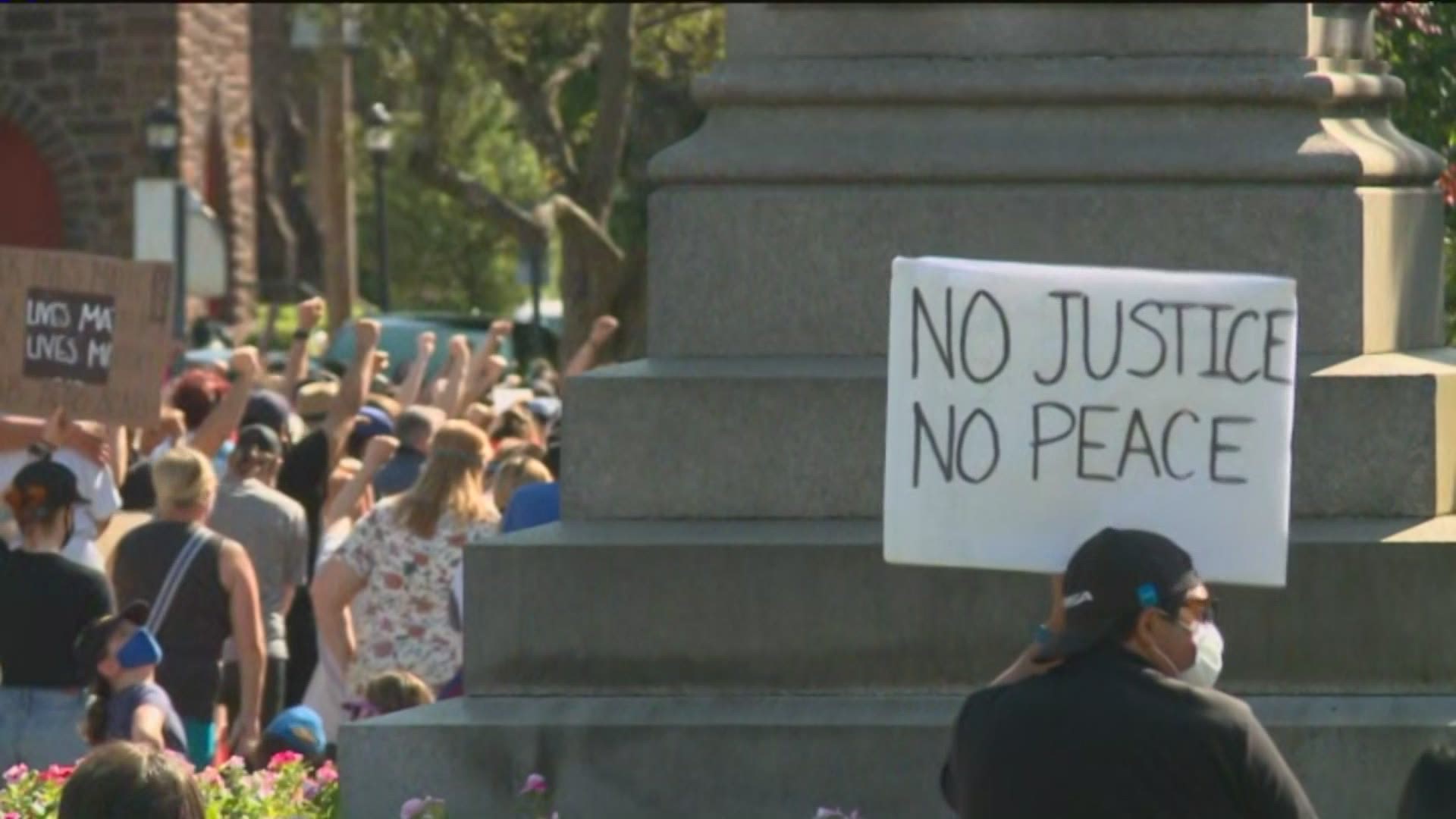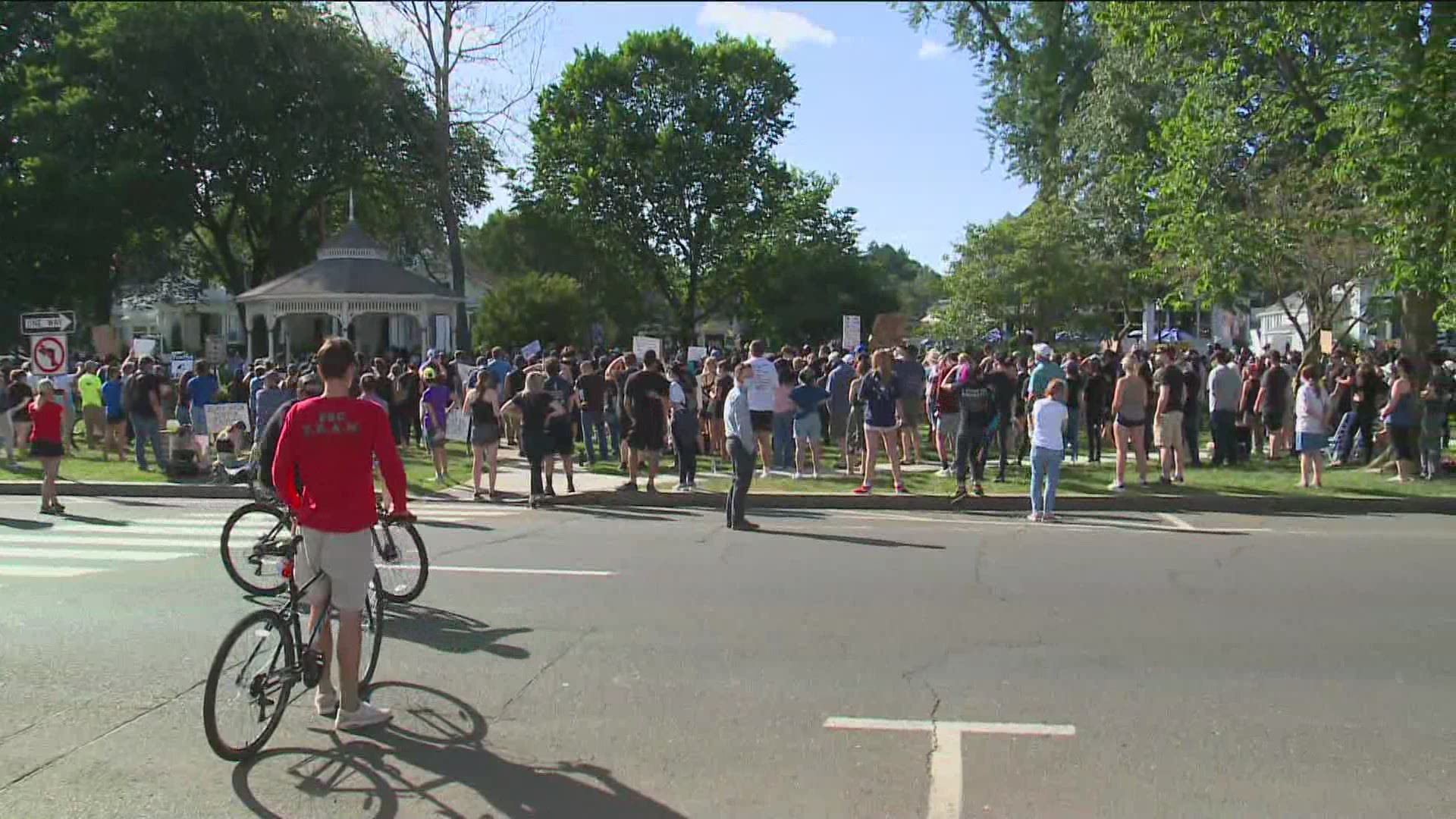HARTFORD, Conn — "Defunding the police". It’s a saying we have heard at protests across the country but what does it mean? Experts say defunding the police isn’t really about abolishing police departments. It’s more so about reform, systematic change and reallocating funds.
University of New Haven professor and retired Branford Police Chief, John DeCarlo, says often police are called upon to do things they don’t have adequate training or resources for. He believes “defunding” the police means reallocate funding to community outreaches better fit to handle the situation.
"For instance, we don’t necessarily need an armed response usually in cases of mental illness where there’s a known problem," said DeCarlo.
That change was touched upon in Milford at a protest on the green. It was also a chance to educate and inform listeners about social injustice.
"I’m not going to be the person to end racism but I definitely sparked the brain to figure out a way to end it," said Joe Grits.
Sparking discussion to educate and change excessive police force that has affected many Americans including Grits. He says he was forced from his car and had his ribs broken during a traffic stop for an improper lane change.
"Getting thrown on the ground abused and then arrested. I just can't see that happen to different races," said Grits.
Speakers on the Milford green asked the crowd to listen and take ownership to help bring about thoughtful change to end systematic racism and police brutality.
"There’s things such as non-lethal force needs to be used. Mental illness training de-escalation training even getting medical professionals as a ride alongs in special units," said Kira Ortoleva.
Ortoleva believes a mental health response team could have made a difference in the police shooting of her friend Mubarak Soulemane in January. She says it was a schizophrenia episode that impaired Soulemane’s judgment that took him on a high-speed chase with state police.
"I believe that if the medical profession was on scene they would’ve seen the symptoms of the mental illness," said Ortoleva.
DeCarlo says remolding police departments isn’t unheard of. New York and New Jersey have dismantled troubled police departments to bring in a whole new staff. He believes it will take a new national policy and changes to local training and recruitment to prevent the same issues from continuously resurfacing.
RELATED: Remembering George Floyd: Thousands pass through Fountain of Praise church for public viewing
"Police are not insular. They are a very visible face of government and if there was a problem with the police and honestly there are some problems that need to be corrected. That is also the responsibility of local, federal and state governments," said DeCarlo. "We have to hold our policymakers and legislators accountable for legislating this change."
Fixing that issue will require new legislation and policy that DeCarlo says needs to be thoroughly studied. He believes reactionary legislation won’t be enough for long term sustainability.


